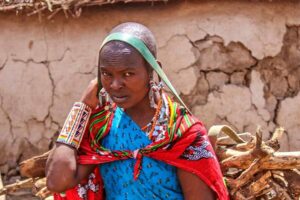Envisioning Resilience: Bringing underrepresented women’s voices into planning for climate change adaptation
Meaningful participation by women who are on the front lines of climate change is essential for gender-responsive, locally led adaptation. However, in many contexts, women remain underrepresented in decision making, from local to national levels. Creative solutions are needed to facilitate dialogue, bridge the gap between different knowledge systems, and ensure that investments in climate action yield equitable benefits for people of all genders and social groups.
Established in 2010 under the United Nations Framework Convention on Climate Change (UNFCCC), National Adaptation Plan (NAP) processes enable countries to build the resilience of their ecosystems, economies, and communities to the impacts of climate change. Led by national governments, the NAP process is intended to be participatory, gender responsive, and inclusive of the most vulnerable groups and communities. This approach presents an opportunity to facilitate dialogue between adaptation decision-makers and the people most affected by the impacts of a changing climate. In most countries, government actors recognize that it is important for effective adaptation planning to be informed by a diversity of voices, particularly those of women, who are often underrepresented in decision making. The challenge is how to make these dialogues happen and how to find a common language to talk about climate change, its impacts, and strategies for building resilience.
Enabling Women on the Front Lines of Climate Change to Share Their Stories
Together with Lensational, a non-profit social enterprise that aims to elevate the voices of women from underrepresented groups and communities using visual storytelling, the NAP Global Network provided an opportunity to groups of women in Ghana and Kenya to have their perspectives and lived experiences inform their country’s NAP process.
This pilot initiative was implemented in close collaboration with the Environmental Protection Agency in Ghana and the Climate Change Directorate in Kenya, with financial support from Global Affairs Canada. Participants undertook training in photography and storytelling while learning from experts who helped them link their observations to climate science, enabling them to develop visual stories that documented their experiences with climate change and their visions of resilience. Over a period of 9 months, the Lensational team and professional photographers mentored the trainees, supporting each one as they developed their personal stories while also bringing them together to develop a collective story for the group.
